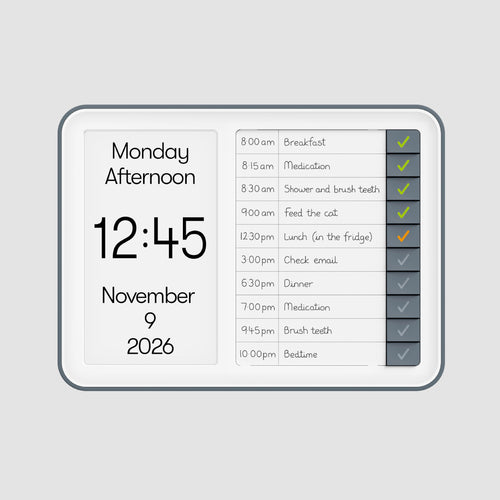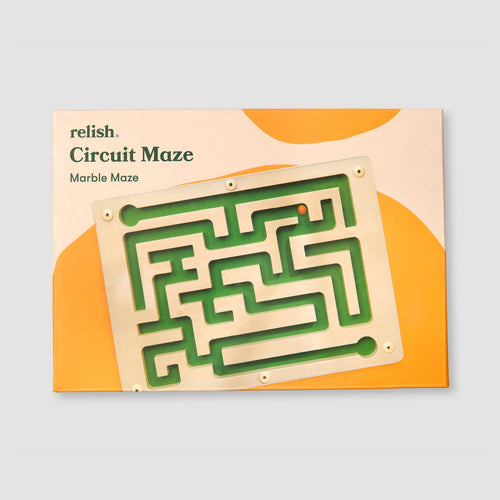Dementia is not a single disease, but a term used to describe a range of conditions that cause gradual damage to the brain. Over time, this damage leads to problems with memory, thinking, communication, and behaviour – all functions controlled by different parts of the brain.
In this article, we’ll explore what happens to the brain with dementia, including:
- How many sections of the brain are affected
- What specific roles those areas play
- What part of the brain Alzheimer’s affects first
- How dementia symptoms relate to brain function
- How different types of dementia impact different regions
Understanding these changes can help families better support their loved ones as the condition progresses.
How Dementia Affects the Brain
Dementia causes physical changes to the brain, gradually interfering with how it works. In most cases, it begins with damage to brain cells (also known as neurons), which disrupts the way messages are sent between different parts of the brain. As more nerve cells are lost, the brain's ability to process information and perform everyday tasks becomes increasingly impaired.
One of the most well-known causes of this damage in Alzheimer’s disease is the build-up of abnormal proteins, including amyloid plaques and tau tangles. These interfere with cell function and lead to the death of brain cells. Over time, this results in the shrinking of brain tissue, especially in areas linked to memory, language, and judgment.
The brain is made up of many specialised regions. When dementia causes widespread damage, it affects not just one part of the brain, but the functions controlled by each of those areas, leading to cognitive decline and behavioural changes.
How the Frontal Lobe Is Affected by Dementia
The frontal lobe sits at the front of the brain and plays a key role in:
- Decision-making
- Judgement
- Emotional control
- Social behaviour
When dementia affects this area, people may struggle to plan, concentrate or regulate their emotions. Daily tasks like paying bills, following instructions, or making safe choices may become difficult.
With Alzheimer’s, damage to the frontal lobe usually happens later in the condition. However, in frontotemporal dementia, a less common but more targeted form, this area is one of the first to deteriorate. This can lead to noticeable personality changes and impulsive or inappropriate behaviour early on.
Temporal Lobes and Memory Loss in Dementia
The temporal lobes sit just above the ears on either side of the brain. They play a vital role in:
- Understanding language
- Recognising familiar faces
- Forming new memories
One of the first areas affected by Alzheimer’s disease is the hippocampus, a structure deep within the temporal lobe that is responsible for converting short-term memories into long-term ones.
As dementia progresses in this region, people may:
- Forget recent conversations
- Misplace items
- Become confused in familiar places.
- Find it difficult to recognise loved ones (in later stages)
-
Damage to the temporal lobes often explains the memory loss that is so commonly associated with dementia
Parietal Lobe and Spatial Awareness
The parietal lobes sit near the top and back of the brain and help us process spatial information. They allow us to:
- Judge distances
- Move around safely,
- Understand where we are in relation to the objects around us
When dementia affects this part of the brain, people may become disoriented or have trouble recognising everyday items.
Tasks like dressing, using utensils or finding rooms in the house can become confusing. In some cases, parietal lobe damage may also impact reading, arithmetic or managing tasks like paying bills.
Occipital Lobe and Visual Processing Issues
The occipital lobe is located at the back of the brain and is responsible for processing visual information. Damage to this area can cause difficulties with:
- Recognising faces
- Interpreting shapes
- Distinguishing between objects
People may misjudge what they’re seeing or become startled by things others would find familiar.
Occipital lobe dementia is rare, but visual misperception can occur in many types of dementia, especially in the later stages. This may contribute to confusion, falls or difficulty navigating environments.
Cerebellum and Motor Function
The cerebellum, located at the base of the brain near the brain stem, helps coordinate movement, posture, and balance. While it’s not usually the first area affected by dementia, some types, including Lewy body dementia and advanced Alzheimer’s, may eventually impact this region.
When the cerebellum is involved, people may experience:
- Tremors
- Unsteady walking
- Reduced coordination
These motor symptoms can increase the risk of falls and limit physical independence.
Brain Stem and Autonomic Functions
The brain stem sits at the base of the brain and connects it to the spinal cord. It controls automatic functions that keep us alive, including breathing, heart rate and sleep cycles.
Although the brain stem is usually unaffected in the early stages of dementia, severe or late-stage dementia can disrupt these essential processes. This may result in changes to sleep, swallowing difficulties or altered breathing patterns.
Read our article on how to make the home safe when you have dementia.
Functions of the Brain Affected by Dementia
Dementia impacts multiple areas of the brain that are responsible for essential mental and physical functions. Which functions are affected, and how severely, depends on the type of dementia and which brain regions are involved.
Here are some of the most common functions that may be affected:
- Memory – Difficulty recalling recent events (short-term memory), forming new memories or recognising familiar faces
- Language – Trouble finding the right words, following conversations or understanding written and spoken language
-
Decision-Making & Judgement – Struggling to make choices, assess risks or manage tasks like paying bills
- Spatial Awareness – Difficulty judging distance, navigating familiar spaces or dressing oneself
-
Emotional Regulation – Changes in mood, increased irritability, anxiety or lack of empathy
-
Motor Function – Reduced coordination, tremors or movement issues, especially in later stages
As dementia progresses, these functions can decline further, making everyday activities more challenging. Early diagnosis and support can help slow this progression and improve quality of life. Learn more about living independently with dementia here.
How Dementia Progresses in the Brain Over Time
Dementia is a progressive condition, meaning changes in the brain unfold gradually over time. In the early stages, damage is usually limited to areas like the hippocampus, leading to memory problems, confusion or difficulty with familiar tasks. These earliest symptoms are often subtle and can be mistaken for normal ageing.
As the disease moves into the middle stages, cognitive decline accelerates. The damage spreads to other brain regions, affecting speech, decision-making and spatial awareness. Personality changes and mood swings may also appear.
In the later stages, the brain undergoes widespread damage. The build-up of proteins and loss of nerve cells affects almost every part of the brain. People may lose the ability to communicate, move independently or recognise loved ones.
Although dementia cannot currently be cured, early diagnosis and appropriate support can help slow progression and preserve function for longer.
While all types of dementia involve damage to the brain, the areas affected — and the symptoms that result — can vary depending on the underlying cause.
Learn more about the different stages of dementia and how to best communicate with a loved one with dementia.
If you or a loved one has been diagnosed with dementia, you may find it helpful to take our quick Find Your Stage quiz to understand which stage you are currently at.
How Different Types of Dementia Affect the Brain
Alzheimer’s disease
The most common type of dementia, Alzheimer’s, typically begins in the hippocampus and temporal lobes, leading to short-term memory loss and confusion. Amyloid plaques and tau tangles build up in the brain, damaging nerve cells and causing widespread shrinkage over time.
Vascular dementia
This form of dementia results from reduced blood supply to the brain, often due to small blood vessel disease, stroke, or high blood pressure. The damage can be patchy, affecting different areas depending on where the blood vessels are blocked. People with vascular dementia may show problems with planning, focus and movement.
Frontotemporal dementia (FTD)
FTD mainly affects the frontal and temporal lobes, leading to early changes in personality, behaviour, and language. Memory often remains intact at first.
Dementia with Lewy bodies
This condition involves abnormal protein deposits (Lewy bodies) in the brain. It often causes movement difficulties, visual hallucinations and fluctuating alertness. In later stages, Lewy body dementia is more likely to cause issues with movement and posture, similar to Parkinson’s Disease Dementia.
FAQs: What People Commonly Ask About Dementia and the Brain
What part of the brain does Alzheimer’s affect first?
Alzheimer’s disease usually begins in the hippocampus, a structure in the temporal lobe responsible for forming new memories. This is why short-term memory loss is often the first symptom.
How many sections of the brain are affected by dementia?
Dementia can affect several regions of the brain, including the frontal, temporal, parietal, occipital lobes, and deeper structures like the hippocampus and limbic system. As the condition progresses, widespread damage often occurs.
Why do people with dementia forget familiar faces?
Damage to the temporal and parietal lobes can affect memory and facial recognition. Over time, even recognising familiar faces may become difficult.
Can dementia cause movement or balance problems?
Yes. In advanced stages or certain types like Lewy body dementia, the cerebellum and brain stem may be affected, leading to balance issues, stiffness or tremors.
Coping with the Brain Changes Behind Dementia
Understanding what happens to the brain of a person with dementia can help families cope with the condition more confidently and compassionately. As different brain functions decline – from memory and speech to decision-making and movement – it becomes easier to recognise symptoms for what they are: signs of neurological change.
At Relish, we create dementia-friendly products designed to comfort, engage and connect, from games to music players and dementia clocks. Explore our range to support your loved one in meaningful, joyful ways, every step of their journey.
We have also created a bank of over 100 free dementia activities to help bring calm, joy and stimulation to those on their dementia journey. Take our quick Find Your Stage quiz if you’re not sure which stage of dementia you or your loved one is at.






















